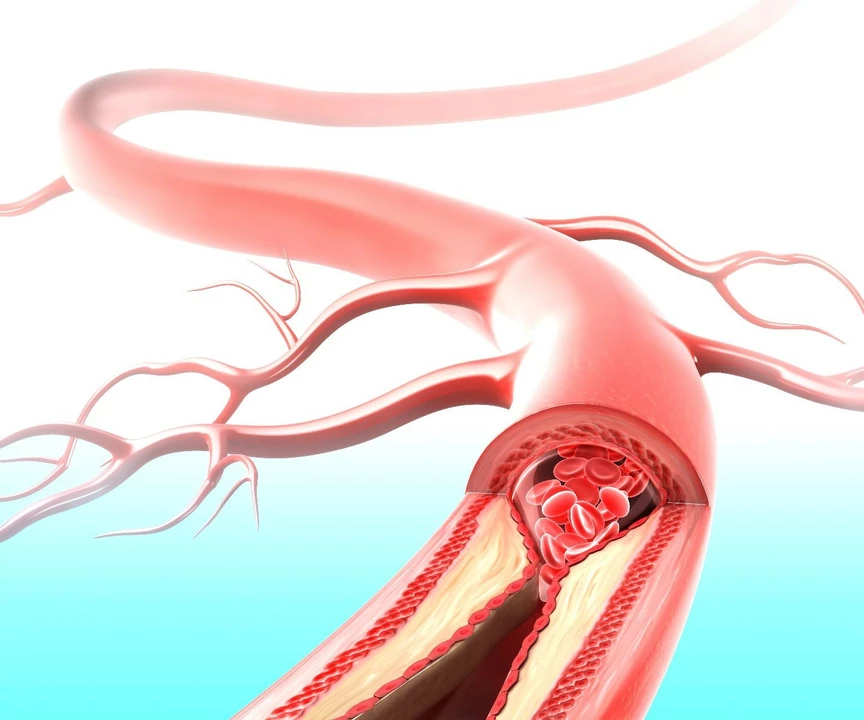Understanding Blood Clots in Stents
Blood clots in stents are a common concern for individuals who have undergone procedures to place stents in their arteries. These devices are designed to help keep blood vessels open, allowing for better blood flow and reducing the risk of heart attacks and other cardiovascular issues. However, blood clots can sometimes form inside the stent, causing complications and necessitating further treatment. In this article, we will explore what to expect during the recovery and rehabilitation process after experiencing a blood clot in a stent.
Recognizing the Signs and Symptoms of Blood Clots
It is essential to be aware of the signs and symptoms of blood clots in stents, as early detection can help prevent more severe complications. Common symptoms include chest pain, shortness of breath, and discomfort in the arms, neck, jaw, or back. These symptoms may be similar to those experienced during a heart attack. If you notice any of these signs, it is crucial to seek medical attention immediately. Early intervention can help to dissolve the blood clot and reduce the risk of further issues.
Medical Treatment for Blood Clots in Stents
Medical treatment for blood clots in stents typically involves the use of medications to help dissolve the clot and prevent new ones from forming. These medications, known as anticoagulants or blood thinners, work by reducing the blood's ability to clot. Commonly prescribed blood thinners include aspirin, clopidogrel, and warfarin. It is crucial to follow your doctor's instructions regarding the use of these medications, as they may need to be taken for an extended period to ensure the clot is fully dissolved and to prevent new ones from forming.
Physical Rehabilitation after a Blood Clot in a Stent
Physical rehabilitation is a crucial part of the recovery process after experiencing a blood clot in a stent. Your healthcare team will likely recommend a cardiac rehabilitation program, which includes supervised exercise, education on heart-healthy living, and counseling to reduce stress and improve mental health. This comprehensive approach helps individuals regain their strength, improve their cardiovascular fitness, and reduce the risk of future blood clots and other complications.
Maintaining a Heart-Healthy Lifestyle
Adopting a heart-healthy lifestyle is essential for preventing blood clots in stents and promoting overall cardiovascular health. This includes making changes to your diet, incorporating regular physical activity, managing stress, and quitting smoking if you are a smoker. A heart-healthy diet should be rich in fruits, vegetables, whole grains, lean proteins, and healthy fats, while limiting saturated and trans fats, sodium, and added sugars. Regular exercise, as recommended by your healthcare team, can help improve your cardiovascular fitness and reduce the risk of blood clots.
Monitoring and Follow-Up Care
Regular monitoring and follow-up care are essential for individuals with stents, as this can help detect any issues early and ensure the stent remains functional. This may include routine blood tests to monitor your blood clotting levels, as well as imaging tests such as angiograms to visualize the blood flow through the stent. It is important to attend all scheduled appointments with your healthcare team and to report any new or worsening symptoms immediately.
Emotional Support and Coping Strategies
Experiencing a blood clot in a stent can be a challenging and emotional experience, and it is essential to have a strong support system in place during the recovery and rehabilitation process. This may include friends and family, as well as support groups and counseling services. It is also important to develop effective coping strategies to manage stress and maintain a positive mindset. This may include relaxation techniques such as deep breathing exercises, meditation, and progressive muscle relaxation, as well as engaging in hobbies and activities that bring joy and help take your mind off of your health challenges.
In conclusion, recovering from a blood clot in a stent requires a comprehensive approach, including medical treatment, physical rehabilitation, lifestyle changes, monitoring and follow-up care, and emotional support. By following your healthcare team's recommendations and taking steps to maintain a heart-healthy lifestyle, you can reduce the risk of future blood clots and improve your overall cardiovascular health.



Mer Amour
Stents aren't magic. People think popping one in fixes everything, but it's just the start. You still have to manage your diet, your meds, your stress. Most don't. That's why clots happen. It's not the stent's fault. It's yours if you don't follow through.
And yes, aspirin isn't optional. No, you don't get to skip it because you 'feel fine.' You're not fine. You're just not dead yet.